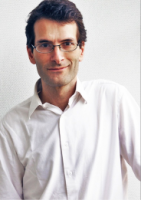Finance, Investment & Risk Management
Societal Challenges
Inequality & Poverty
Financial Markets, Modelling & Pricing
Income & Wealth
Social Cohesion & Community Building
AXA Chairs
France
2012.11.28
AXA Chair in Market Sociology
Digging into data on 18 member-countries of the OECD for the period of 1970 to 2011, Prof. Godechot’s team showed that the share of countries’ GDP contributed by the finance sector is a major driver of inequality around the world. Indeed, between 1980 and 2007, a period that witnessed several financial crises, this factor explained 20-40% of the increase in inequality. The effect is strongest at the top of the income distribution, with the highest earners benefiting disproportionately from financial activity. Finance is multi-faceted, though, and not every aspect worsens inequality, Prof. Godechot found. Traditional banking and household debt do not seem to contribute; rather, it is due to the “growing amount of social energy devoted to the trade of financial instruments on financial markets,” he explains.
Going further, the researchers identified the mechanism by which financialization could exacerbate problems of social equality. The top players in financial markets can achieve such high pay by leveraging their social and technical capital. This allows them to move—or threaten to move—assets and knowledge from one firm to another, in a maneuver described as a “hold-up”. At its extreme, Prof. Godechot gives the example of two trading room managers who each secured a multimillion-dollar bonus by threatening to resign and take the entire team with them, unless their employer could match a rival firm’s offer within 48 hours. The financial sector is unique in its vulnerability to this strategy. While, in industry, a factory is protected by property rights, in finance, patents and non-compete agreements do at best a poor job to protect the firm's assets.
It is crucial to understand and mitigate the risks described, because their impact is not just financial, but social, too. And the huge bonuses seen in finance provide an incentive to misjudge the risk involved, creating ever more social risk. Olivier Godechot suggests that measures limiting the size of finance could alleviate both the issue of hold-ups and of worsening inequality. These might include a special tax on finance income, or policies requiring banks to hold more capital before engaging on the financial markets. Controlling the financial hazard could, thus, lead to greater equality and a healthier sense of cohesion across society.
Does More Finance Mean More Inequality?
To add or modify information on this page, please contact us at the following address: community.research@axa.com

Olivier
GODECHOT
Institution
Sciences Po
Fondation Nationale des Sciences Politiques (FNSP)
Country
France
Nationality
French
Related articles
Societal Challenges
Artificial Intelligence & Emerging Technologies
Civil Society & Governance
Polarization & Social Divides
Ethical AI & Responsible Innovation
Post-Doctoral Fellowship
Hong Kong
Impact of Misinformation & Mistrust on Environmental Issues & Democracy: A Comparative Study
Environmental disasters and the way information about them is shared can affect how well democracy works and how people get... Read more

Minos Athanasios
KARYOTAKIS

